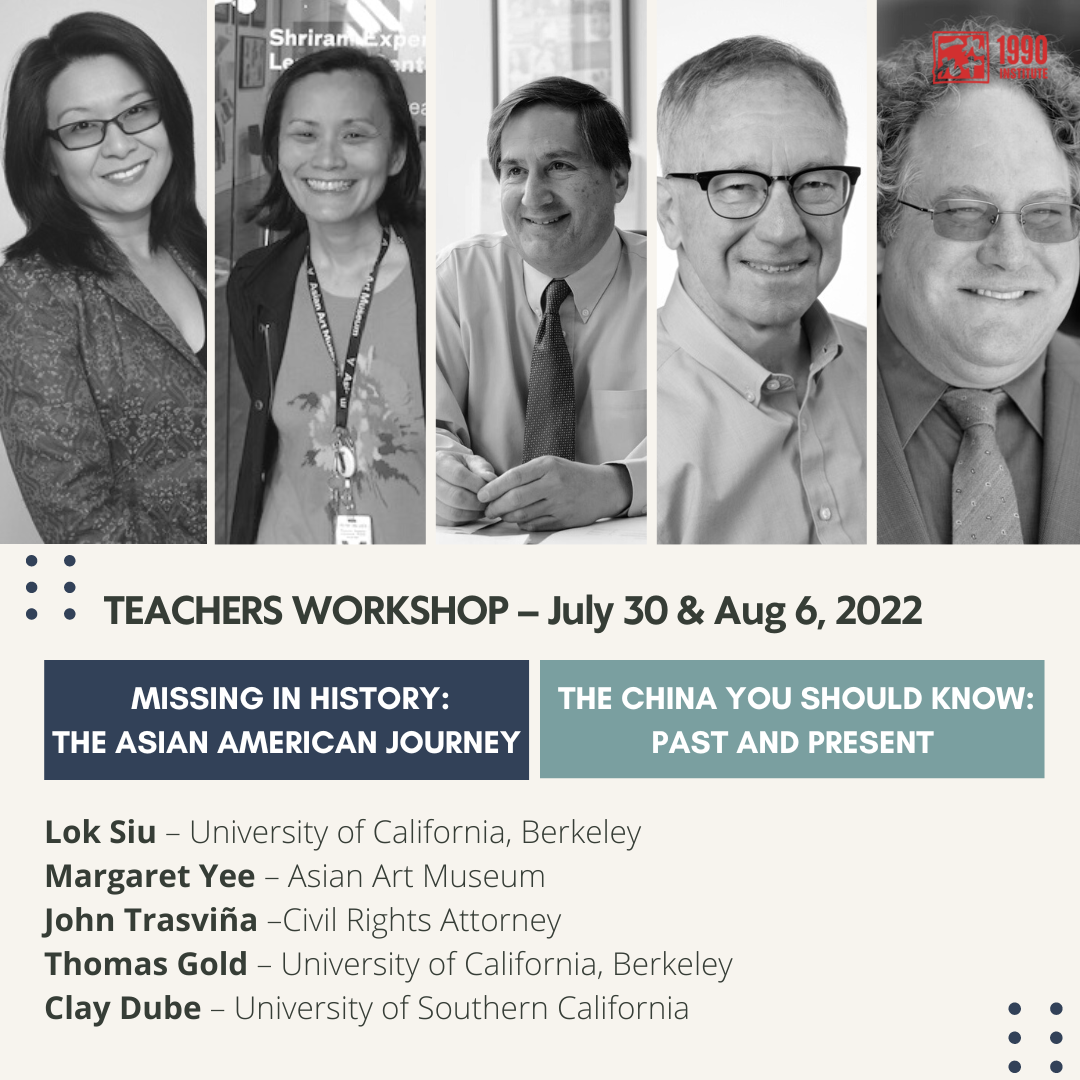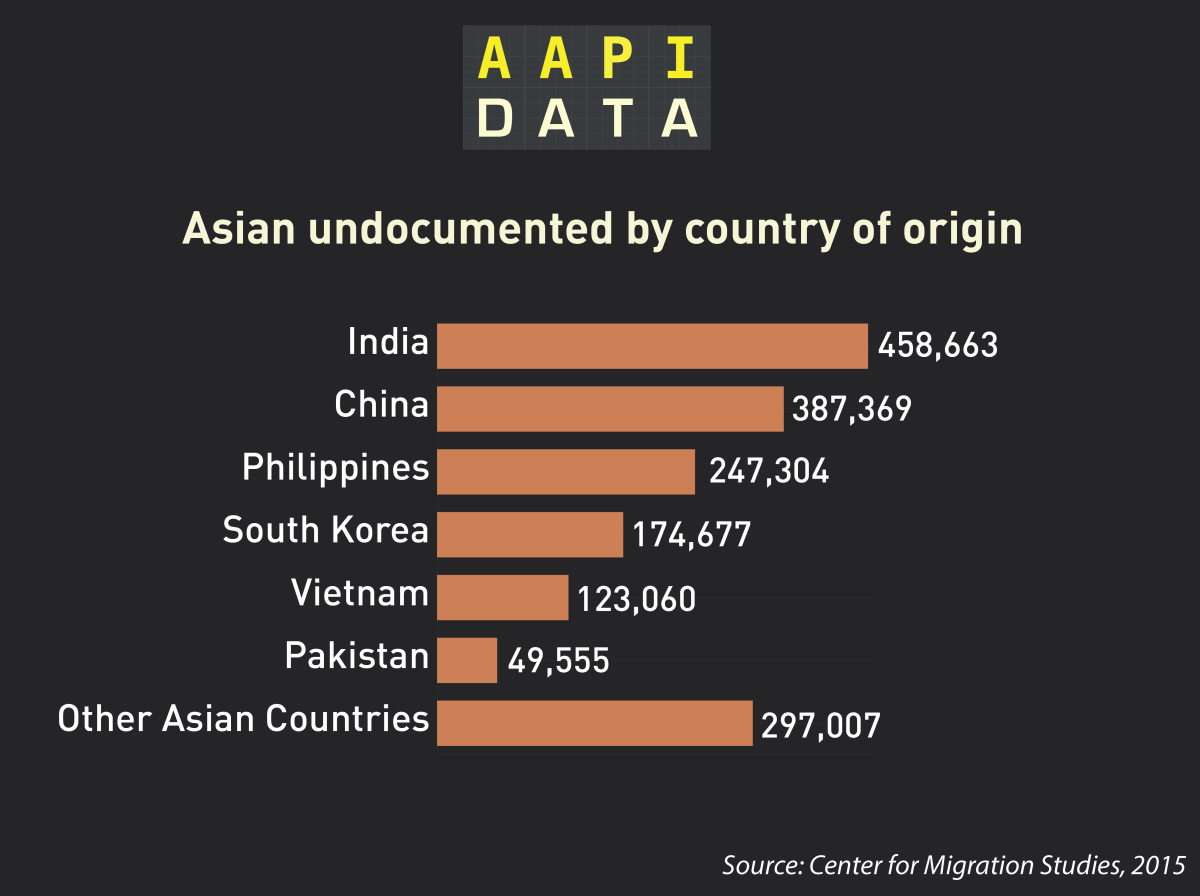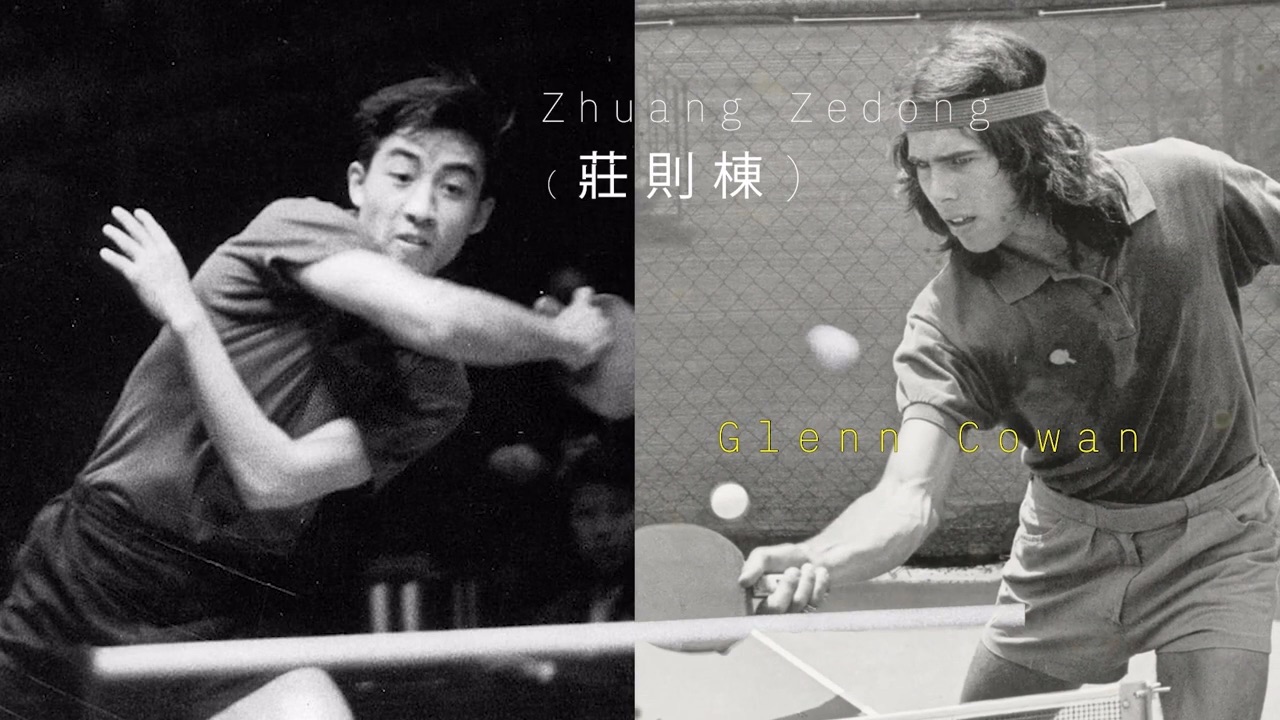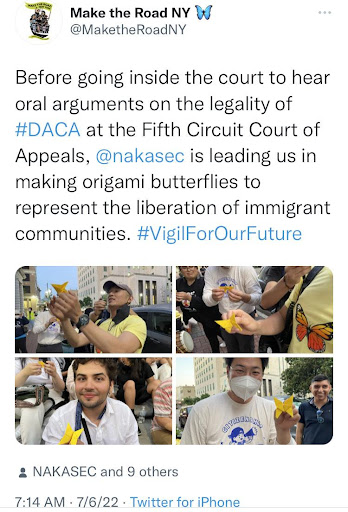| | | Dear Friends, Oh! Happy Obon Season! And join us for our upcoming sessions of Teachers Workshop on July 30 and August 6. We have experts from UC Berkeley, USC, the Asian Art Museum, and more who will be discussing the Asian American experience and modern China with you. Register today and check out our Spotlight section below to see all that’s new. Thanks for your continued support of the 1990 Institute and newsletter. Please share this newsletter with your friends and family and encourage them to subscribe. |
| |  |
|
| | | Will you dance with the community this Obon season? By Frances Kai-Hwa Wang I have been wistfully watching my favorite Obon dances online, wishing I could be there with everyone, as COVID continues to leave its mark on how our communities come together. Every summer weekend up and down the west coast, in Hawaii, and wherever there is a Japanese American community, Japanese American Buddhist temples host Obon religious services and dance. The community gathers to remember family members that have passed and to dance for the spirits of their ancestors and for the community. Japanese American Boy Scout and Girl Scout troops clean headstones in the old Japanese American cemeteries. The Obon festival is the Japanese festival of the dead, similar to the Christian All Souls Day and the Chinese Hungry Ghosts Festival (gui jie). It commemorates the Buddhist story of how the monk Mokuren had a vision of his mother suffering in the hell of hungry ghosts as punishment for being stingy. Shakyamuni Buddha told Mokuren to go care for his community. When Mokuren learned that his good deeds had indeed freed his mother, he danced for joy and gratitude. Every summer, my children love dressing up in kimono and yukata and dancing around the yagura tower with the community, eating delicious food (teriyaki chicken, tempura, spam musubi, saimin, mochi, anpan, shaved ice, more), watching the taiko drummers strut, listening to the minyo band croon old Japanese folksongs, and following the Aunties who know all the moves. Part of what makes the Obon dance so powerful is that it is not performed up on a stage for an audience to watch, but down on the ground, with everyone moving together in a circle. There is power in coming together as a community. In the wake of the U.S. Supreme Court decision overturning Roe v. Wade, advocates are speaking out. “I was outraged,” Rep. Judy Chu, Chair of the Congressional Asian Pacific American Caucus (CAPAC), said in a statement, “This ruling will harm women and families everywhere — with restricted access to abortion disproportionally impacting people of color. Asian American, Native Hawaiian, and Pacific Islander (AANHPI) women already face numerous barriers — including language, economic and legal obstacles — when trying to access healthcare, particularly in regard to contraception and family planning care.” Chu was later arrested while protesting. Other community activists marched, spoke, and drummed on the steps of the federal court in New Orleans last week as the Fifth Circuit Court of Appeals heard oral arguments in Texas v. U.S. regarding Deferred Action for Childhood Arrivals (DACA). DACA is an Asian American issue — 1.7 million Asian Americans or one out of every seven Asian immigrants is undocumented, according to AAPIData; and roughly 10 perccent of DACA applicants are AAPI. “DACA was never intended to be a long-term solution for undocumented youth,” said Annie Wang, director of the Asian American Legal Defense and Education Fund’s Immigrant Justice Project. “AALDEF stands with all immigrant communities to demand that Congress and the White House enact legislation that would provide a pathway to citizenship for young immigrants and all others who are undocumented in this country.” |
| |
|
|  | Asian undocumented in the U.S. by country of origin from AAPI Data. |
| | |
|
| Adoptees who publicly support Roe targeted by anti-abortion activists: ‘What if you were aborted?’ | NBC News Adoptee activists find themselves vulnerable to harassment, their experiences questioned or made light of and their agency too often removed in the fight for reproductive rights. Asian domestic violence survivors are in more danger after Roe ruling, experts fear | NBC News As abortion is currently or set to be banned and restricted in dozens of states, advocates say Asian immigrant women experiencing sexual violence have fewer options than ever. Hawaii museum revisits history of gender-fluid healers | NBC News “They were respected and honored because the people knew that their male and female duality made them even more powerful a healer.” Remembering the life and legacy of Japan’s former Prime Minister Shinzo Abe | PBS NewsHour Prime Minister Shinzo Abe, who was shot dead with a homemade gun in a nation that has largely eliminated gun violence, contributed to stabilizing relations with China while he was prime minister. China’s president visits Hong Kong 25 years after the end of British rule | PBS NewsHour Chinese President Xi Jinping visited Hong Kong to lead official celebrations for the 25th anniversary of the territory’s handover from Britain to China. The celebrations are leaving the city divided. China demands U.S. end military ‘collusion’ with Taiwan | PBS NewsHour Gen. Li Zuocheng told Gen. Mark Milley that China had “no room for compromise” on issues affecting its “core interests,” which include self-governing Taiwan, which Beijing claims as its own territory. Wis. school board members dismissed book about Japanese American incarceration as being ‘unbalanced,’ parents say | NBC News “What she said to me was that we actually need an ‘American’ perspective,’” said parent Ann Zielke, who said she pointed out that those who were incarcerated were, in fact, Americans. Japanese American National Museum (JANM) on “When the Emperor Was Divine” rejection. Playwright Deepak Kumar relished O’Neill conference | The Day "What is home and how do we find home? ... You've come to this place where there's constant pressure to morph into something that fits a much broader palette." He laughs. "Or palate, in this case. But, how do you do this and survive?" Federal appeals court in New Orleans hears arguments on immigrants brought to US as kids | NOLA.com Supporters of Deferred Action for Childhood Arrivals (DACA) program gathered in New Orleans, “I am undocumented and I will speak out today." 'Dreamers' rally outside New Orleans court | WWLTV. After a Surprise Firing, University of Michigan Has a New President | NY Times Santa J. Ono will be the university’s first Asian American president, taking helm during a contentious time in higher education. |
| |  | Learn how a serendipitous encounter between Chinese and U.S. table tennis players in 1971 ultimately led to the 1979 normalization of U.S.-China relations in our “Ping Pong Diplomacy” video. |
| |
|
| | - JOIN US FOR TEACHERS WORKSHOP ON JULY 30 AND AUGUST 6 – Our virtual Teachers Workshop begins in two weeks. We have registrations from across the U.S. – at least 28 states so far. Everyone who would like to learn more about the Asian American experience (July 30) and modern China (August 6) is welcome to attend our FREE webinars that offer professional development for teachers and valuable resources for all. We welcome you to register for one or both tracks. Included are interactive sessions with the speakers and educators as well as resources and lesson guides. Register or learn more on our event page.
- Track 1: Missing in History: The Asian American Journey
Saturday, July 30, 2022, 8 am-11:30 am PT (11 am-2:30 pm ET) - Asian American history is part of American history. This workshop will address key issues on Asian Americans and follow an ethnic studies framework and curriculum requirements.
- Session 1: The Making of Asian Americans, 8 am PT with Lok Siu, Associate Professor of Ethnic Studies, UC Berkeley, and Margaret Yee, Manager of School and Teacher Programs, Asian Art Museum
- Session 2: Major Asian American Legal Cases that Changed America, 10 am PT with John Trasviña, former California Executive Director, Generation Citizen, and former Dean, University of San Francisco School of Law
- Track 2: The China You Should Know: Past and Present
Saturday, August 6, 2022, 9 am-12:30 pm PT (12 pm-3:30 pm ET) - As an emerging superpower, what impact will China have globally, both economically and politically? This track will focus on Modern China and its impact on the U.S and on the world.
- Session 1: China’s Past Is Always Present, 9 am PT with Thomas Gold, former Professor of Sociology, UC Berkeley
- Session 2: Headline: China, 11 am PT with Clay Dube, Executive Director, U.S.-China Institute, USC
- U.S.-CHINA VIDEO: PING PONG DIPLOMACY – Did you know that a serendipitous encounter in 1971 between two table tennis players set in motion a positive change in diplomatic exchanges that political leaders from both countries had seemed to desire but couldn’t find an opening to affect? Find out more about how sportsmanship and the spirit of “Friendship First, Competition Second” ushered in a new chapter in U.S.-China relations in “Ping Pong Diplomacy.”
|
| | Dim Sum - A Little Bit of Heart |
|  | |
|
|
|
| | | | 1990 Institute
P.O. Box 383 | San Francisco, California 94104
contact@1990institute.org www.1990institute.org Copyright 2022, The 1990 Institute. All rights reserved. |
| | | |
|
| |
|
|